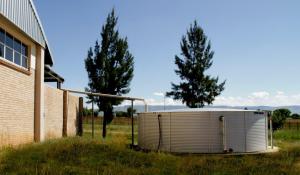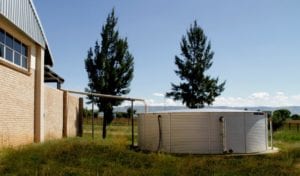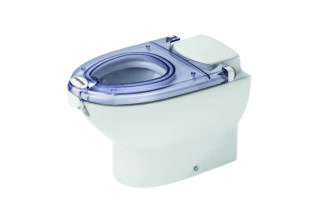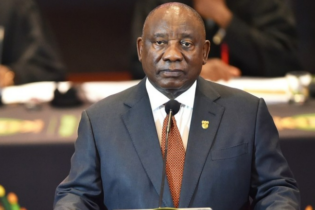Water has been trending as a topic on South African news and unfortunately not for all the right reasons. WWF South Africa have embarked together with The Department of Water and Sanitation and various other stakeholders on their annual #JourneyOfWater campaign. The campaign highlights the fact that 8% of South Africa’s land area (catchment areas), provides 50% of its surface water. The message is clear – water does not come from a tap. It is a precious resource that needs to be conserved. In reality though, some South African municipalities lose as much as 40% of its treated water due to ageing infrastructure.
 The risk to industry in terms of water security is high, both in direct operations and supply chain. An interruption in supply can have devastating effects on productivity and ultimately profitability. Brian Wilson, Sales and Marketing Manager of SBS Tanks states that businesses should prioritise back-up water supply as much as they do emergency energy resources. Climate change is bound to exacerbate the problem as ultimately demand will exceed supply.
The risk to industry in terms of water security is high, both in direct operations and supply chain. An interruption in supply can have devastating effects on productivity and ultimately profitability. Brian Wilson, Sales and Marketing Manager of SBS Tanks states that businesses should prioritise back-up water supply as much as they do emergency energy resources. Climate change is bound to exacerbate the problem as ultimately demand will exceed supply.He states that we are beginning to see a trend where Industry is identifying water as a risk and taking measures to ensure a constant backup source of water. “There are many ways of achieving this objective. Industry leaders have invested in water storage solutions and green building awareness have seen an upward trend in the implementation of rainwater harvesting systems. This is an exciting trend, which if adopted on a larger scale, could see an increase in the total South African rainwater catchment area. Our company has been involved in a number of exciting projects providing tailor made solutions for the efficient capturing of rainwater. Most notably perhaps is the CTM Group who have embarked on an environmentally friendly approach by means of installing a fully functional rainwater harvesting system at each of their upcoming stores and the retrofitting of older premises.”
Successful installations have been completed in Angola, Botswana, the Democratic Republic of the Congo, Equatorial Guinea, ghana, Lesotho, Malawi, Mozambique, Namibia, the Seychelles, Zambia, Mauritius, USA, UAE, New Caledonia, US Virgin Islands, Myanmar and Panama.







